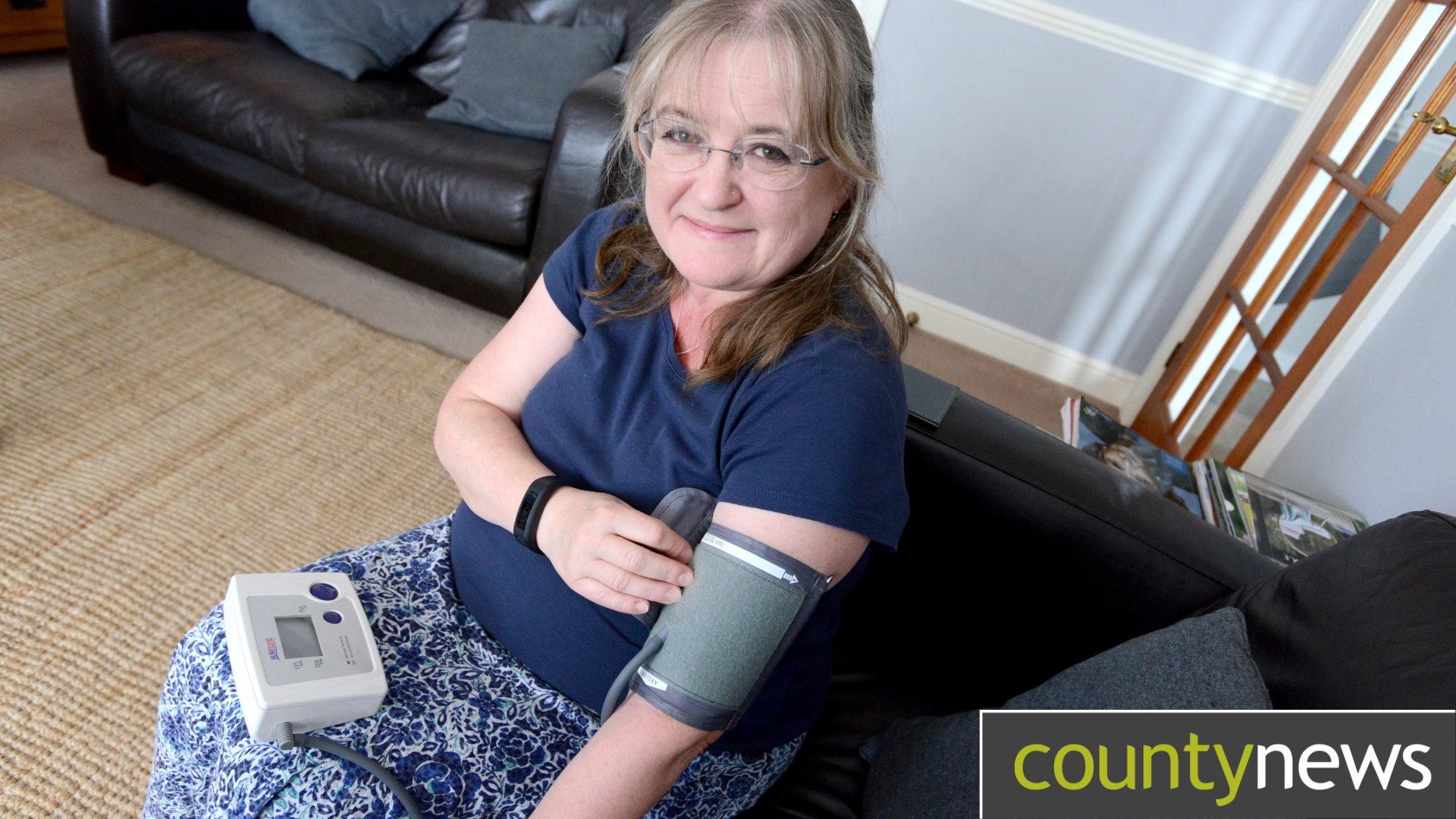
Almost 200,000 people in Lincolnshire are unknowingly living with high blood pressure, increasing their risk of heart attack or stroke
Every day in the UK around 350 people suffer a preventable heart attack or stroke caused by high blood pressure, or hypertension.
When your blood pressure is high for a long period of time, it puts extra strain on your heart and blood vessels. If left untreated, the extra strain can eventually damage your body’s organs, which can lead to serious health problems.
“Approximately six million people in the UK and 3 in 10 people in Lincolnshire do not know they are living with high blood pressure,” explained Councillor Wendy Bowkett, Executive Councillor for Adult Care and Public Health.
“Many people with this issue feel fine - you could have high blood pressure and not know it. So finding out your blood pressure - ‘know your numbers’ – and acting to lower it, could save your life.”
Leading a healthier lifestyle can prevent high blood pressure and dramatically reduce the risks.
- eating less salt
- eating more fruit and vegetables
- drinking less alcohol
- being a healthy weight
- being physically active
- stopping smoking
- reducing stress.
The ‘Know Your Numbers’ campaign runs from 5-11 September and is designed to encourage adults across the UK to access a blood pressure test and take the necessary actions.
You can use a simple and reliable blood pressure monitor at home and take the necessary steps if the reading is high. This can also help provide your doctor with a complete picture about your blood pressure from day to day.
Visit www.bloodpressureuk.org to look at the recommended clinically validated home pressure monitors, and the available resources that provide support with taking your blood pressure at home.
There are other opportunities for people to have their blood pressure checked, for example, when you have an NHS Health Check or if you have a regular check-up because of a long-term condition.
If you need to make healthy lifestyle changes, One You Lincolnshire can help. It offers support to stop smoking, lose weight, move more and drink less alcohol. Check your eligibility at www.oneyoulincolnshire.org.uk or ask your health care professional for a referral.
Other useful contacts:
- The Lincolnshire NHS Diabetes Prevention Programme - provided by Xlya, supports people at risk of developing Type 2 diabetes www.preventing-diabetes.co.uk
- Blood pressure and testing - www.nhs.uk/common-health-questions/lifestyle/what-is-blood-pressure
- ‘Know your Numbers’ and the Blood Pressure UK campaign - www.bloodpressureuk.org
- Information and support on heart and circulatory conditions - www.bhf.org.uk
- Walking, cycling and horse-riding - www.lincolnshire.gov.uk/coast-countryside/walking-cycling-horse-riding
Being Active with a Disability
If you have a disability being active can increase your strength and fitness and help improve your ability to do everyday tasks. It also provides a great opportunity to meet new people.
Search for ‘Disability Friendly Activities’ on www.letsmovelincolnshire.com/ to discover activities near you, or take a look at the ‘Getting active with a disability’ pages.
Juliette’s story
“No one had picked up my high blood pressure previously other than it being slightly raised during my three pregnancies, but nothing was followed up and I did not feel unwell.
“A routine workplace check discovered a very high blood pressure reading of 224 over 131 was recorded – any readings consistently 140 over 90 over time are a concern.
“My blood pressure was checked at the doctors, along with the recordings that I regularly started taking and it was confirmed that it was consistently high. Medication was required, but crucially my blood pressure is now under control.
“The outcome of my workplace health check was a massive wake up call. I was aware of what I needed to do to live a healthy lifestyle, but following the readings, I became more clearly focussed on losing weight.
“I have made some adjustments to what I eat and how it’s cooked, have joined a gym and have incorporated lunchtime walks when I can. I also drink more water and less alcohol.”
